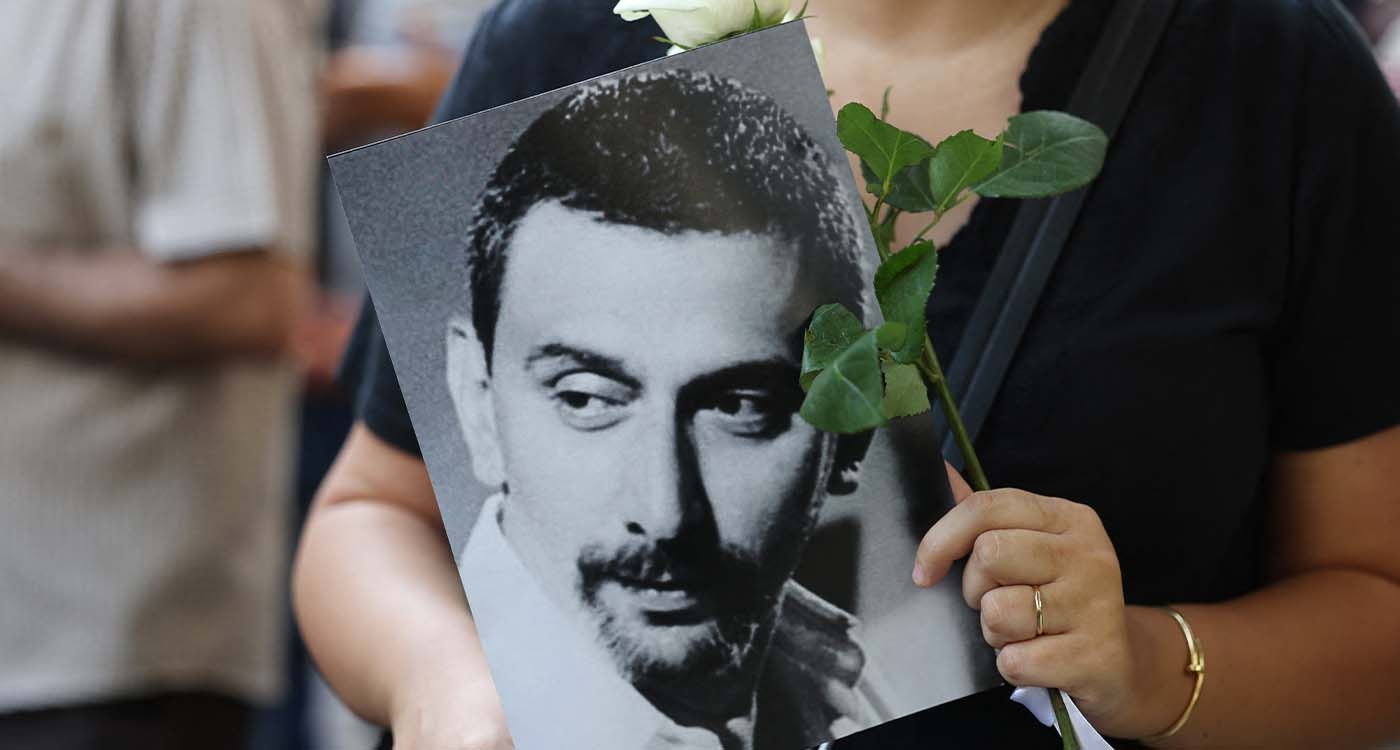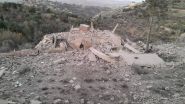
Ziad Rahbani, Lebanon’s most brilliant satirist and musical artist, was finally laid to rest. But instead of a dignified farewell fitting of the man who gave voice to a nation’s contradictions, his funeral devolved into a spectacle, an unintentional parody of the plays he once wrote.
Some mocked Dima’s presence, others sneered at Majida’s kneeling. A TL reporter praised Haifa Wehbe live on air for taking the time to come and pay her respects. Online wars erupted over Ziad’s politics: Was he too red? Too green? Too much of a traitor or too much of a hero? And the debate on X filled with stupid posts justifying why they hate his politics but admire his music was a pure representation of a narcissistic society.
It has become a national sport in Lebanon to demonize the artist, dissect the dead and cancel the living. We label before we listen, we vilify before we understand. Ziad Rahbani’s political views were always provocative, he supported the Palestinian cause, flirted with communist ideals and later offered controversial sympathy toward Hezbollah and the Assad regime. During his lifetime, he said what many wouldn’t dare, and wrote what most couldn’t imagine.
But his art? It transcended politics. His plays, such as “Bennesbeh La Boukra, Chou?” and “Nazl el Sourour,” didn’t just criticize the system, they held a mirror to our fractured souls. His music blended funk, jazz, tarab and satire into something deeply Lebanese, deeply human.
To reduce a life like Ziad’s to a Facebook argument is not only petty, it’s cultural suicide.
Here’s the chilling thought: If the combination of Ziad’s fearless satire and Fairuz’s divine voice couldn’t pull Lebanon together, what hope do we have now?
When Lebanon was burning, Fairuz sang prayers while Ziad wrote punchlines. They offered opposing but complementary visions of survival. She gave us nostalgia and grace, while he gave us provocation and truth. Together, they built a cultural vocabulary that defied war, sectarianism and exile.
But, we failed them.
We turned their legacy into tribal property. The problem was never the artist. The problem was us.
The real crisis is not that Ziad is gone. It’s that we, as a society, can no longer celebrate genius without dissecting it through our personal biases.
A collapsing society always turns on its creators first. In ancient Rome, they burned the libraries. In Lebanon, we assassinate the spirit, one tweet, one insult, one character assassination at a time.
Ziad Rahbani was not a saint. He never wanted to be. But he was real. And real is rare in a country addicted to façades.
So, even at his funeral, Ziad was pulling Lebanon’s stitches loose, not because he wanted to, but because they were never sewn properly to begin with.
Among the mourners was journalist Dima Sadek, tears streaming, body shaking, heart seemingly shattered. Cameras captured her in emotional overdrive, sobbing louder than the Rahbani family itself. And while grief is personal, Dima’s display felt… unnatural.
This wasn’t quiet mourning. This was a monologue of melodrama that made some ask: Was she crying for Ziad, or for the spotlight?
Ziad, who spent his life mocking false piety and staged patriotism, would’ve likely chuckled darkly at the irony, his funeral hijacked by someone he would’ve skewered in a single sardonic line.
To mourn a man like Ziad requires humility. Not hashtags, not sob sessions. It demands listening, not shouting. Reflection, not center stage.
Then came Majida.
She entered the church with reverence, only to theatrically fall to her knees before Fairuz, Lebanon’s eternal voice, Ziad’s mother and an emblem of quiet dignity. Fairuz, seated in black, veiled in grief, recoiled ever so slightly. Not rudely, but instinctively, as if to say, “This is not the time, and I am not the audience.”
Majida’s gesture might have been heartfelt, but its timing and intensity felt uninvited, like a staged reconciliation with history that no one had asked for. It wasn’t homage, it was awkward. In that moment, the contrast between the two women spoke volumes: one embodying poetic restraint, the other swept up in operatic gesture.
Ziad, who knew performance better than anyone, would’ve seen right through it.
These theatrics aren’t isolated incidents. They’re symptoms.
In truth, Ziad’s funeral didn’t just bury a man. It exposed the hollowness of a culture where grief is choreographed and authenticity is lost in the noise of public image.
We no longer attend funerals to honor. We attend to be seen.
As Lebanon buries its iconoclast, let this be a national moment of reckoning. Stop asking if Ziad belonged to your camp. Ask if his voice made you feel something, think differently, challenge your assumptions. That was his mission. That was his art.
And if you cannot respect the artist without a purity test, perhaps the real death we should mourn is not Ziad Rahbani’s, but Lebanon’s cultural soul.




Comments